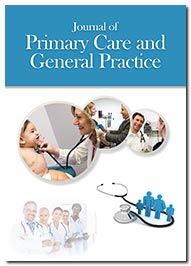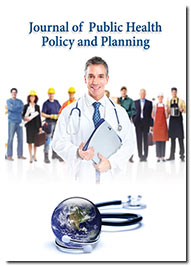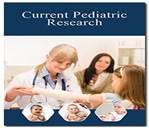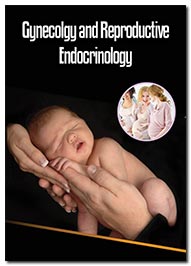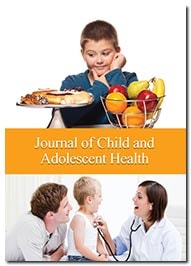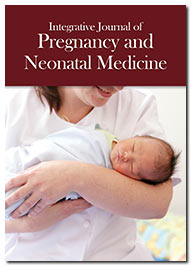Theme:
NEONATAL NURSING 2020
On behalf of the Conference series Ltd, it is our deep pleasure to invite all the Great Scientists, Academicians, young researchers, Professors, Doctors, Business persons, Nurses, Delegates and Students moreover Who are the front line of warriors in this pandemic situation from all over the world to attend the 4th World Summit on Neonatology Nursing and Primary Health Care Virtual event from March 24-25, 2021. The main theme of the conference is “”
Neonatology Nursing-2021 shares an insight into the recent research and cutting edge technologies, which gains immense interest with the colossal and exuberant presence of adepts, young and brilliant researchers, Professors, Doctors, and talented student communities.
Neonatology Nursing and Primary Health Care meeting’s goal is to bring together, a multi-disciplinary group of Scientists and Researchers, Professors, Doctors, Nurses from all over the world are invited cordially to present and exchange break-through ideas relating to the and Neonatal Care and Primary Health Care promotes top level research and to globalize the quality research in general, thus making discussions, presentations more internationally competitive and focusing attention on the recent outstanding breakthroughs in the field of Neonatal Nursing and Primary Health Care , and future trends and needs.
We’re looking forward to an excellent meeting of all dignitaries from different countries all around the world to share innovative ideas and exciting trends in Neonatal Nursing and Primary Health Care which will be held on March 24-25, 2021.
YRF Registration Benefits:
- Young Scientist Award recongination certificate and memento to the winners
- Our conferences provide best Platform for your research through oral presentations
- Learn about career improvement with all the latest technologies by networking
- Young Scientists will get appropriate and timely information by this Forum
- Platform for collaboration among young researchers for better development
- Provide an opportunity for research interaction and established senior investigators across the globe in the field
- Share the ideas with both eminent researchers and mentors
- It’s a great privilege for young researchers to learn about the research areas for expanding their research knowledge
Here we are happy to announce the 3rd World Summit on Neonatal Nursing and Primary Health Care which will be held during November 9-10, 2020 at Webinar with the theme of Enlightening the New Horizons in Neonatal Care & Primary Health Care
This upcoming conference will focused on Excelling innovations in Enlightening the New Horizons in Neonatal Care & Primary Health Care. It is a great opportunity for who participating from universities and institutions to network with world-class scientists and nurses, professors, doctors.
A Gathering of experts to upgrade the practice of Neonatology Nursing and Primary Health Care in Human Well-Being, our speakers and participants avail chances to learn and share their knowledge among their global peers.
Additional Benefits of participation at Neonatology Nursing 2020:
- All accepted abstracts will be published in the supporting journals of the conference and Conference Book Proceedings
- Each abstract will receive a DOI number provided by Cross Ref
- Meet Experts & Influencers Face to Face
- Certification by the organizing committee
- One to One Interaction with Keynote Speakers, OCM and Eminent personalities for the future course of work
- Global networking: In transferring
Reasons to Attend:
- To expose your research and experiences gained so far in Pediatrics, Neonatology and Neonatology Nursing and Primary Health Care to the global experts
- To gain innovative ideas for your further studies
- To have an exposure globally
- To analyse and investigate the recent and upcoming trends in Pediatrics, Neonatology and Neonatology Nursing and Primary Health Care
TargetAudience:
- Pediatricians
- Pediatric
- Nutritionists
- Pediatric surgeons
- Nursing Professors
- Nurses and Doctors
- General Physicians
- Neonatologists
- Pediatric Clinicians and Associates
- Pharmacists
- Academicians
- Specialists in adolescent medicine
1. Neonatal Nursing
Neonatal nursing is a subspecialty of nursing that works with new-born infants born with a variety of problems ranging from prematurity, birth defects, infection, cardiac malformations, and surgical problems. Neonatal nursing generally encompasses care for those infants who experience problems shortly after birth, but it also encompasses care for infants who experience long-term problems related to their prematurity or illness after birth. A few neonatal nurses may care for infants up to about 2 years of age. Most neonatal nurses care for infants from the time of birth until they are discharged from the hospital.
Before birth, the baby depends on functions from the mother. These include breathing, eating, elimination of waste, and immune protection. When a baby leaves the womb, its body systems must change.
For example:
- The lungs must breathe air
- The cardiac and pulmonary circulation changes
- The digestive system must begin to process food and excrete waste
- The kidneys must begin working to balance fluids and chemicals in the body and excrete waste
- The liver and immune systems must begin working on their own
Related Conferences: Neonatology Congress | Nursing Congress | Nursing Meetings| Neonatology Summit | Neonatology Events | Nursing Summits | Neonatology Conferences | Neonatology Workshops | Nursing Meetings | Nursing Events | Neonatology Summit | Latest Innovations in Neonatology and Pediatrics | | Women Care | Nutrition Meetings | Midwifery Nursing | Neurology Summits | Primary Health care Summits | Primary Health Care Meetings | Primary Health Care Conferences | Primary Health Care Events.
Related Associations and Societies: American Academy of Pediatrics | Canadian Pediatric Associations | Indian Academy of Pediatrics | Dutch Associations of Pediatrics | Paediatric Association of Nigeria | Paediatric Society of New Zealand | Palm Beach Pediatric Society | Texas Pediatric Society | Advanced Practice Nursing | International Network for Doctoral Education in Nursing | International Nurses Society on Addictions | International Nurses Society on Addictions | International Organization of Multiple Sclerosis Nurses | International Society for Psychiatric-Mental Health Nurses
2. Neonatal Gastroenterology
The neonatal gastrointestinal system undergoes dramatic changes in response to enteral feeding. A Gastrointestinal growth spurt occurs in the first 24 hours after birth, largely driven by the trophic effect of enteral nutrition
Common Neonatal Gastroenterology Problems :
- Vomiting
- Constipation
- Diarrhea
- Abdominal Colic
- Neonatal Vomiting
Vomiting or, more often regurgitation is a relatively frequent symptom during the neonatal period in first few hours after infants may vomit mucus, occasionally blood streaked. This vomiting rarely persists after fist few feedings. It may be due to irritation of the gastric mucosa by material swallowed during delivery. If the vomiting is protracted, gastric lavage with physiologic saline solution may relive it.
Related Conferences: Neonatology Congress | Nursing Congress | Nursing Meetings| Neonatology Summit | Neonatology Events | Nursing Summits | Neonatology Conferences | Neonatology Workshops | Nursing Meetings | Nursing Events | Neonatology Summit | Latest Innovations in Neonatology and Pediatrics | | Women Care | Nutrition Meetings | Midwifery Nursing | Neurology Summits | Primary Health care Summits | Primary Health Care Meetings | Primary Health Care Conferences | Primary Health Care Events.
Related Associations and Societies: American Academy of Pediatrics | Canadian Pediatric Associations | Indian Academy of Pediatrics | Dutch Associations of Pediatrics | Paediatric Association of Nigeria | Paediatric Society of New Zealand | Palm Beach Pediatric Society | Texas Pediatric Society | Advanced Practice Nursing | International Network for Doctoral Education in Nursing | International Nurses Society on Addictions | International Nurses Society on Addictions | International Organization of Multiple Sclerosis Nurses | International Society for Psychiatric-Mental Health Nurses
3. Perinatology:
A perinatologist - or maternal-fetal medicine specialist - is an obstetrician/gynecologist that has completed specialty training needed to understand and treat complex medical concerns relating to pregnancy that can involve the mother and her unborn baby. These concerns may be obstetrical, medical, surgical, and/or genetic complications, and may occur during pregnancy, childbirth, the postnatal and/or postpartum periods. The perinatologist will work in consultation with the primary obstetrician. The extent of the relationship between both doctors varies depending on the condition of the patient.
Perinatologists deal with many risk factors that may adversely impact the mother and/or her unborn baby. Some examples include: pre-term labor, pre-eclampsia, multifetal gestations, previous pregnancy concerns (such as cervical incompetence and miscarriage), diabetes (both gestational and pre-gestational), cardiovascular disease, chronic renal disease, chronic hypertension, congenital disorders (such as cystic fibrosis), neurological disorders (such as epilepsy and multiple sclerosis), infectious diseases (such as herpes, hepatitis, HIV and AIDS) , family medical history, eating disorders and substance abuse
Related Conferences: Neonatology Congress | Nursing Congress | Nursing Meetings| Neonatology Summit | Neonatology Events | Nursing Summits | Neonatology Conferences | Neonatology Workshops | Nursing Meetings | Nursing Events | Neonatology Summit | Latest Innovations in Neonatology and Pediatrics | | Women Care | Nutrition Meetings | Midwifery Nursing | Neurology Summits | Primary Health care Summits | Primary Health Care Meetings | Primary Health Care Conferences | Primary Health Care Events.
Related Associations and Societies: American Academy of Pediatrics | Canadian Pediatric Associations | Indian Academy of Pediatrics | Dutch Associations of Pediatrics | Paediatric Association of Nigeria | Paediatric Society of New Zealand | Palm Beach Pediatric Society | Texas Pediatric Society | Advanced Practice Nursing | International Network for Doctoral Education in Nursing | International Nurses Society on Addictions | International Nurses Society on Addictions | International Organization of Multiple Sclerosis Nurses | International Society for Psychiatric-Mental Health Nurses
4. Pediatric Nursing
Nurses who specialize in pediatrics devote their knowledge and skills to caring for children from infancy through the late teenage years and their families. These specialized nurses usually complete advanced training in pediatrics and collaborate closely with physicians and other health care providers who share their dedication to children’s health. Like other nurses, paediatric nurses can perform physical examinations, measure vital statistics, take blood and urine samples and order diagnostic tests.
Ten most important tasks included in a general pediatric nurse’s job description
- Identify changes in a child’s signs and symptoms and intervene in emergent situations
- Maintain privacy and confidentiality in nurse/child relationships
- Differentiate between normal and abnormal physical findings
- Serve as a child advocate
- Participate in activities to manage a child’s pain
- Analyze situations to anticipate pathophysiological problems and detect changes in status
- Administer medication using age-appropriate guidelines
- Determine a child’s needs related to pain management
- Evaluate a child for signs and symptoms of abuse
- Provide supportive care to dying children
Related Conferences: Neonatology Congress | Nursing Congress | Nursing Meetings| Neonatology Summit | Neonatology Events | Nursing Summits | Neonatology Conferences | Neonatology Workshops | Nursing Meetings | Nursing Events | Neonatology Summit | Latest Innovations in Neonatology and Pediatrics | | Women Care | Nutrition Meetings | Midwifery Nursing | Neurology Summits | Primary Health care Summits | Primary Health Care Meetings | Primary Health Care Conferences | Primary Health Care Events.
Related Associations and Societies: American Academy of Pediatrics | Canadian Pediatric Associations | Indian Academy of Pediatrics | Dutch Associations of Pediatrics | Paediatric Association of Nigeria | Paediatric Society of New Zealand | Palm Beach Pediatric Society | Texas Pediatric Society | Advanced Practice Nursing | International Network for Doctoral Education in Nursing | International Nurses Society on Addictions | International Nurses Society on Addictions | International Organization of Multiple Sclerosis Nurses | International Society for Psychiatric-Mental Health Nurses
5. Clinical Nursing
Clinical nurse specialists (CNS) are advanced practice registered nurses (APRNs) that serve as experts in evidence-based nursing practice within one of a number of different specialty areas. They integrate their advanced knowledge of disease processes in assessing, diagnosing, and treating patient illnesses, but their role extends beyond providing patient care. The fundamental goal of clinical nurse specialists is to provide safe, qualify, and cost-effective specialty care, all while working to improve the healthcare system from within. Clinical nurse specialists work in a variety of clinical practice areas, specializing in one or more of the following:
- Population (pediatrics, women’s health, geriatrics, etc...
- Type of care (psychiatric, rehabilitation
- Type of problem (wound care, pain management, etc...
- Disease/medical subspecialty (oncology, diabetes, etc...
- Setting (critical care, emergency, etc...
Related Conferences: Neonatology Congress | Nursing Congress | Nursing Meetings| Neonatology Summit | Neonatology Events | Nursing Summits | Neonatology Conferences | Neonatology Workshops | Nursing Meetings | Nursing Events | Neonatology Summit | Latest Innovations in Neonatology and Pediatrics | | Women Care | Nutrition Meetings | Midwifery Nursing | Neurology Summits | Primary Health care Summits | Primary Health Care Meetings | Primary Health Care Conferences | Primary Health Care Events.
Related Associations and Societies: American Academy of Pediatrics | Canadian Pediatric Associations | Indian Academy of Pediatrics | Dutch Associations of Pediatrics | Paediatric Association of Nigeria | Paediatric Society of New Zealand | Palm Beach Pediatric Society | Texas Pediatric Society | Advanced Practice Nursing | International Network for Doctoral Education in Nursing | International Nurses Society on Addictions | International Nurses Society on Addictions | International Organization of Multiple Sclerosis Nurses | International Society for Psychiatric-Mental Health Nurses
6. Pediatric Surgery
Paediatric surgery is a subspecialty of general surgery, a branch of medicine that deals with children from their infancy to their teenage years. Although paediatric surgery also includes the diagnosis of the patient, it is more involved with the treatment, specifically surgical care. A paediatric surgeon, the term used for specialists in this field, develops the best treatment plan for the patient, conducts pre-operative examinations and preparations, and follows up on the patient's progress as part of the post-surgical care.
Surgery can be classified as major or minor, depending on the seriousness of the illness, the parts of the body affected the complexity of the operation, and the expected recovery time.
Major surgery. These are surgeries of the head, neck, chest, and some surgeries on the belly (abdomen). The recovery time can be lengthy and may involve a stay in intensive care or several days in the hospital. There is a higher risk of complications after such surgeries. In children,
Types of major surgery may include:
- Removal of brain tumors
- Correction of bone malformations of the skull and face
- Repair of congenital heart disease, transplantation of organs, and repair of intestinal malformations
- Correction of spinal abnormalities and treatment of injuries sustained from major blunt trauma
- Correction of problems in fetal development of the lungs, intestines, diaphragm, or anus.
Related Conferences: Neonatology Congress | Nursing Congress | Nursing Meetings| Neonatology Summit | Neonatology Events | Nursing Summits | Neonatology Conferences | Neonatology Workshops | Nursing Meetings | Nursing Events | Neonatology Summit | Latest Innovations in Neonatology and Pediatrics | | Women Care | Nutrition Meetings | Midwifery Nursing | Neurology Summits | Primary Health care Summits | Primary Health Care Meetings | Primary Health Care Conferences | Primary Health Care Events.
Related Associations and Societies: American Academy of Pediatrics | Canadian Pediatric Associations | Indian Academy of Pediatrics | Dutch Associations of Pediatrics | Paediatric Association of Nigeria | Paediatric Society of New Zealand | Palm Beach Pediatric Society | Texas Pediatric Society | Advanced Practice Nursing | International Network for Doctoral Education in Nursing | International Nurses Society on Addictions | International Nurses Society on Addictions | International Organization of Multiple Sclerosis Nurses | International Society for Psychiatric-Mental Health Nurses
7. Neonatal Nutrition
Good nutrition is essential for survival, physical growth, mental development, performance, productivity, health and well-being across the entire life-span: from the earliest stages of fetal development, at birth, and through infancy, childhood, adolescence and on into adulthood.
Premature babies need to receive good nutrition so they grow at a rate close to that of babies still inside the womb. Babies born at less than 37 weeks gestation (premature) have different nutritional needs than babies born at full term (after 38 weeks). Premature babies will often stay in the neonatal intensive care unit they are watched closely to make sure they are getting the right balance of fluids and nutrition. Incubators or special warmers help babies maintain their body temperature. This reduces the energy the babies have to use to stay warm. Moist air is also used to help them maintain body temperature and avoid fluid loss.
Babies born before 34 to 37 weeks often have problems feeding from a bottle or a breast. This is because they are not yet mature enough to coordinate sucking, breathing, and swallowing.
Other illness can also interfere with a new-born’s ability to feed by mouth. Some of these include:
- Breathing problems
- Low oxygen levels
- Circulation problems
- Blood infection
- New-born babies who are very small or sick may need to get nutrition and fluids through a vein (IV).
Related Conferences: Neonatology Congress | Nursing Congress | Nursing Meetings| Neonatology Summit | Neonatology Events | Nursing Summits | Neonatology Conferences | Neonatology Workshops | Nursing Meetings | Nursing Events | Neonatology Summit | Latest Innovations in Neonatology and Pediatrics | | Women Care | Nutrition Meetings | Midwifery Nursing | Neurology Summits | Primary Health care Summits | Primary Health Care Meetings | Primary Health Care Conferences | Primary Health Care Events.
Related Associations and Societies: American Academy of Pediatrics | Canadian Pediatric Associations | Indian Academy of Pediatrics | Dutch Associations of Pediatrics | Paediatric Association of Nigeria | Paediatric Society of New Zealand | Palm Beach Pediatric Society | Texas Pediatric Society | Advanced Practice Nursing | International Network for Doctoral Education in Nursing | International Nurses Society on Addictions | International Nurses Society on Addictions | International Organization of Multiple Sclerosis Nurses | International Society for Psychiatric-Mental Health Nurses
8. Neonatal Resuscitation
Neonatal Resuscitation is an intervention after a baby is born to help it breathe and to help its heart beat. Before baby is born the placenta provides oxygen & nutrition to the blood and removes carbon dioxide. After a baby is born the lungs provide oxygen to the blood and remove carbon dioxide.
The transition from using the placenta to using the lungs for gas exchange begins when the umbilical cord is clamped or tried off, and the baby has its first breath.
- Many babies go through this transition without needing intervention
- Some babies need help with establishing their air flow, breathing or circulation
- Neonatal Resuscitation is helping the new born with Airway, Breathing, and circulation
- Preparation for Resuscitation
- Anticipation
- Adequate Equipment
- Adequate Personnel
Related Conferences: Neonatology Congress | Nursing Congress | Nursing Meetings| Neonatology Summit | Neonatology Events | Nursing Summits | Neonatology Conferences | Neonatology Workshops | Nursing Meetings | Nursing Events | Neonatology Summit | Latest Innovations in Neonatology and Pediatrics | | Women Care | Nutrition Meetings | Midwifery Nursing | Neurology Summits | Primary Health care Summits | Primary Health Care Meetings | Primary Health Care Conferences | Primary Health Care Events.
Related Associations and Societies: American Academy of Pediatrics | Canadian Pediatric Associations | Indian Academy of Pediatrics | Dutch Associations of Pediatrics | Paediatric Association of Nigeria |Paediatric Society of New Zealand | Palm Beach Pediatric Society | Texas Pediatric Society | Advanced Practice Nursing | International Network for Doctoral Education in Nursing | International Nurses Society on Addictions | International Nurses Society on Addictions |International Organization of Multiple Sclerosis Nurses | International Society for Psychiatric-Mental Health Nurses
9 Primary Health Care
Primary healthcare is a term used to describe the first contact a person has with the health system when they have a health problem or issue that is not an emergency. It is the part of the health system that people use most and may be provided, for example, by a general practitioner physiotherapist or pharmacist. Primary healthcare is a term used to describe a range of healthcare providers who work in the community. Any healthcare professional who is the first point of contact for the health system can be a primary healthcare provider. Most people visit their general practitioner (sometimes referred to as the 'local doctor') as a first step when they have a health problem that is not an emergency. The primary healthcare system also includes allied health professionals, such as dentists and physiotherapists.
Primary healthcare is provided in a community setting, such as a general practice or dental clinic. Primary healthcare providers may work in medical clinics, community health centres and allied health practices, such as physiotherapy and podiatry practices.
Primary healthcare services
Services delivered by primary healthcare providers include:
- Diagnosis, treatment and care of people with health problems
- Promoting good health
- Preventing health problems
- Early intervention
- Managing on-going and long-term conditions.
- Healthcare services play an important role in advising and helping you to prevent illness and maintain good health
Related Conferences: Neonatology Congress | Nursing Congress | Nursing Meetings| Neonatology Summit | Neonatology Events | Nursing Summits | Neonatology Conferences | Neonatology Workshops | Nursing Meetings | Nursing Events | Neonatology Summit | Latest Innovations in Neonatology and Pediatrics | | Women Care | Nutrition Meetings | Midwifery Nursing | Neurology Summits | Primary Health care Summits | Primary Health Care Meetings | Primary Health Care Conferences | Primary Health Care Events.
Related Associations and Societies: American Academy of Pediatrics | Canadian Pediatric Associations | Indian Academy of Pediatrics | Dutch Associations of Pediatrics | Paediatric Association of Nigeria | Paediatric Society of New Zealand | Palm Beach Pediatric Society | Texas Pediatric Society | Advanced Practice Nursing | International Network for Doctoral Education in Nursing | International Nurses Society on Addictions | International Nurses Society on Addictions | International Organization of Multiple Sclerosis Nurses | International Society for Psychiatric-Mental Health Nurses
10. Primary care in Mental Health
Primary healthcare is about providing ‘essential healthcare’ which is universally accessible to individuals and families in the community and provided as close as possible to where people live and work. It refers to care which is based on the needs of the population. It is decentralised and requires the active participation of the community and family.
Providing mental health services in primary healthcare involves diagnosing and treating people with mental disorders; putting in place strategies to prevent mental disorders and ensuring that primary healthcare workers are able to apply key psychosocial and behavioural science skills, for example, interviewing, counselling and interpersonal skills, in their day to day work in order to improve overall health outcomes in primary healthcare.
Integrated primary mental health services are complementary with tertiary and secondary level mental health services (see the ‘optimal mix of services’ information sheet), e.g. general hospital services (short stay wards, and consultation-liaison services to other medical departments), which can manage acute episodes of mental illness quite well but do not provide a solution for people with chronic disorders who end up in the admission–discharge–admission (revolving door syndrome) unless backed up by comprehensive primary healthcare services or community services.
Related Conferences: Neonatology Congress | Nursing Congress | Nursing Meetings| Neonatology Summit | Neonatology Events | Nursing Summits | Neonatology Conferences | Neonatology Workshops | Nursing Meetings | Nursing Events | Neonatology Summit | Latest Innovations in Neonatology and Pediatrics | | Women Care | Nutrition Meetings | Midwifery Nursing | Neurology Summits | Primary Health care Summits | Primary Health Care Meetings | Primary Health Care Conferences | Primary Health Care Events.
Related Associations and Societies: American Academy of Pediatrics | Canadian Pediatric Associations | Indian Academy of Pediatrics | Dutch Associations of Pediatrics | Paediatric Association of Nigeria | Paediatric Society of New Zealand | Palm Beach Pediatric Society | Texas Pediatric Society | Advanced Practice Nursing | International Network for Doctoral Education in Nursing | International Nurses Society on Addictions | International Nurses Society on Addictions | International Organization of Multiple Sclerosis Nurses | International Society for Psychiatric-Mental Health Nurses
11. Primary Care in Nursing
Primary health care nurses work in a range of settings, every sharing the characteristic that they are a part of the first level of contact with the health system.
Primary care nurses must be skilled in a variety of everyday basic nursing procedures. Primary care nurse may encounter a wide range of medical problems. These are typically minor illnesses, such as colds and allergic reactions. Primary care nurse will also vary depending on specialty. For example, primary care nurses specializing in general family medicine will see patients of all ages. Pediatric primary care nurses, on the other hand, treat only children, while primary care nurses specializing in geriatrics treat only elderly patients.
Roles of a primary health care nurse
- Health promotion
- Illness prevention
- Healthy ageing
- Antenatal and postnatal care
- Child and family health nursing
- Treatment and care of sick people
- Rehabilitation and palliation
- Community development
- Population and public health
- Education and research
- Policy development and advocacy
Related Conferences: Neonatology Congress | Nursing Congress | Nursing Meetings| Neonatology Summit | Neonatology Events | Nursing Summits | Neonatology Conferences | Neonatology Workshops | Nursing Meetings | Nursing Events | Neonatology Summit | Latest Innovations in Neonatology and Pediatrics | | Women Care | Nutrition Meetings | Midwifery Nursing | Neurology Summits | Primary Health care Summits | Primary Health Care Meetings | Primary Health Care Conferences | Primary Health Care Events.
Related Associations and Societies: American Academy of Pediatrics | Canadian Pediatric Associations | Indian Academy of Pediatrics | Dutch Associations of Pediatrics | Paediatric Association of Nigeria | Paediatric Society of New Zealand | Palm Beach Pediatric Society | Texas Pediatric Society | Advanced Practice Nursing | International Network for Doctoral Education in Nursing | International Nurses Society on Addictions | International Nurses Society on Addictions | International Organization of Multiple Sclerosis Nurses | International Society for Psychiatric-Mental Health Nurses
12. Primary healthcare of neurological disorders
The term “neurologic disorder” applies to any condition that is caused by a dysfunction in part of the brain or nervous system, resulting in physical and/or psychological symptoms. The development of the human brain begins during pregnancy and continues through infancy, childhood and adolescence. Most brain cells are formed before birth but the trillions of connections between these nerve cells (neurons) are not developed until infancy. The brain is composed of gray matter (neurons and interconnections) and white matter (axons surrounded by a myelin sheath). A motor neuron (above) carries impulses away from the brain.
The brain is self-organizing. It selects information to forward its growth and development. It also adapts to the environment. Experience of the environment through the senses of touch, smell, sight, taste and hearing produces connections in the brain.
All neurologic disorders involve the brain, spinal column or nerves. Symptoms depend on where damage occurs. Areas that control movement, communication, vision, hearing or thinking can be affected.
Causes of Neurologic Disorders
Many neurologic disorders are “congenital,” meaning they were present at birth. But some of the disorders are “acquired,” which signifies that they developed after birth. Those with an unknown cause are termed “idiopathic.
Related Conferences: Neonatology Congress | Nursing Congress | Nursing Meetings| Neonatology Summit | Neonatology Events | Nursing Summits | Neonatology Conferences | Neonatology Workshops | Nursing Meetings | Nursing Events | Neonatology Summit | Latest Innovations in Neonatology and Pediatrics | | Women Care | Nutrition Meetings | Midwifery Nursing | Neurology Summits | Primary Health care Summits | Primary Health Care Meetings | Primary Health Care Conferences | Primary Health Care Events.
Related Associations and Societies: American Academy of Pediatrics | Canadian Pediatric Associations | Indian Academy of Pediatrics | Dutch Associations of Pediatrics | Paediatric Association of Nigeria | Paediatric Society of New Zealand | Palm Beach Pediatric Society | Texas Pediatric Society | Advanced Practice Nursing | International Network for Doctoral Education in Nursing | International Nurses Society on Addictions | International Nurses Society on Addictions | International Organization of Multiple Sclerosis Nurses | International Society for Psychiatric-Mental Health Nurses
13. Health and Wellness
Health is a state of complete physical, mental and social well-being and not merely the absence of disease or infirmity.” In other words, your health is about much more than physical ailments — it's about emotional and social fitness, too.
On the other hand, wellness is the “active process of becoming aware of and making choices toward a healthy and fulfilling life. A dynamic process of change and growth.” The two concepts are not opposites, but rather go hand in hand in one’s quest toward complete well-being. We can’t always choose the state of our health. High cholesterol and blood pressure are largely genetic. People are born with heart disease and a predisposition toward diabetes. Accidents cause injuries that last a lifetime.
- But wellness, on the other hand, is a choice.
- We can choose to exercise regularly to manage our health conditions (where possible).
- We can choose to quit smoking and to take our medications as prescribed.
- We can see a therapist when our mental state needs some assistance.
Wellness is a way for us to actively work toward better health. A way to take some control of our bodies and minds. Even though none of us will ever be in “perfect” health, making a conscious effort to improve our wellness can make us feel better
Related Conferences: Neonatology Congress | Nursing Congress | Nursing Meetings| Neonatology Summit | Neonatology Events | Nursing Summits | Neonatology Conferences | Neonatology Workshops | Nursing Meetings | Nursing Events | Neonatology Summit | Latest Innovations in Neonatology and Pediatrics | | Women Care | Nutrition Meetings | Midwifery Nursing | Neurology Summits | Primary Health care Summits | Primary Health Care Meetings | Primary Health Care Conferences | Primary Health Care Events.
Related Associations and Societies: American Academy of Pediatrics | Canadian Pediatric Associations | Indian Academy of Pediatrics | Dutch Associations of Pediatrics | Paediatric Association of Nigeria | Paediatric Society of New Zealand | Palm Beach Pediatric Society | Texas Pediatric Society | Advanced Practice Nursing | International Network for Doctoral Education in Nursing | International Nurses Society on Addictions | International Nurses Society on Addictions | International Organization of Multiple Sclerosis Nurses | International Society for Psychiatric-Mental Health Nurses
14. Neonatal Lung Diseases and Hepatitis
Neonatal respiratory diseases are common in premature new-borns born before 32 weeks of pregnancy, because their lungs are not able to make enough surfactant, a foamy substance that keeps the lung fully expanded.
Neonatal respiratory diseases include:
- Apnea of prematurity external link
- Bronchopulmonary dysplasia
- Childhood interstitial lung disease
- Meconium aspiration syndrome external link
- Persistent pulmonary hypertension of the new born
- Pleural disorders
- Pneumonia
- Transient tachypnea of the new born external link
After birth, doctor‘s will check baby for signs and symptoms of respiratory diseases, such as very slow or irregular breathing, rapid breathing, noisy or gurgled breathing, a weak cry, a rapid heart rate, grunting, flaring of the nostrils with each breath.
Neonatal respiratory diseases can lead to low levels of oxygen to the body, affecting vital organs such as the heart, brain, and kidney. They can also lead to long-term lung damage, frequent lung infections, and developmental delays. With careful treatment, the complications of neonatal respiratory diseases may go away over time. Learn more about research studies to improve the quality of life for new-borns who have respiratory diseases in Research for Your Health.
Related Conferences: Neonatology Congress | Nursing Congress | Nursing Meetings| Neonatology Summit | Neonatology Events | Nursing Summits | Neonatology Conferences | Neonatology Workshops | Nursing Meetings | Nursing Events | Neonatology Summit | Latest Innovations in Neonatology and Pediatrics | | Women Care | Nutrition Meetings | Midwifery Nursing | Neurology Summits | Primary Health care Summits | Primary Health Care Meetings | Primary Health Care Conferences | Primary Health Care Events.
Related Associations and Societies: American Academy of Pediatrics | Canadian Pediatric Associations | Indian Academy of Pediatrics | Dutch Associations of Pediatrics | Paediatric Association of Nigeria | Paediatric Society of New Zealand | Palm Beach Pediatric Society | Texas Pediatric Society | Advanced Practice Nursing | International Network for Doctoral Education in Nursing | International Nurses Society on Addictions | International Nurses Society on Addictions | International Organization of Multiple Sclerosis Nurses | International Society for Psychiatric-Mental Health Nurses
15. Infectious diseases and Global Health in children
Infectious diseases are illness caused by germs
Bacteria, Viruses, Fungi, Parasites
How are illnesses & infestations spread?
- Airborne: Respiratory infections, chickenpox, hand/foot mouth disease, measles, mumps, whooping cough and rubella.
- Fecal/Oral: Viral Enteritis, E coli 0157:H7, Giardia, Cryptosporidiosis, shigella, salmonella or hepatitis
- Blood/body fluids: HIV, hepatitis B and Hepatitis C
- Direct Contact: Skin infections and infestations such as impetigo, lice, scabies, ringworm, and herpes simplex
Routine Practices:
- Cover mouth and nose with a tissue when we cough or sneeze.
- Teach children to sneeze or cough into the inner arm where the elbow flexes instead of sneezing or coughing into their hands
- Do not share personal items such as hairbrushes, hats, toothbrushes, facecloths, towels, cups, or bottles.
Treatment is accessible in a very form of clinical settings, like the hospital-based adolescent clinic, further as school-based clinics and community settings. School members have experience in drugs, nursing, psychology, health education, welfare work and reach.
Chronic conditions: Management of complex medical problems and chronic conditions (asthma, chronic fatigue, headaches, diabetes, chronic anemia and other illnesses
Related Conferences: Neonatology Congress | Nursing Congress | Nursing Meetings| Neonatology Summit | Neonatology Events | Nursing Summits | Neonatology Conferences | Neonatology Workshops | Nursing Meetings | Nursing Events | Neonatology Summit | Latest Innovations in Neonatology and Pediatrics | | Women Care | Nutrition Meetings | Midwifery Nursing | Neurology Summits | Primary Health care Summits | Primary Health Care Meetings | Primary Health Care Conferences | Primary Health Care Events.
Related Associations and Societies: American Academy of Pediatrics | Canadian Pediatric Associations | Indian Academy of Pediatrics | Dutch Associations of Pediatrics | Paediatric Association of Nigeria | Paediatric Society of New Zealand | Palm Beach Pediatric Society | Texas Pediatric Society | Advanced Practice Nursing | International Network for Doctoral Education in Nursing | International Nurses Society on Addictions | International Nurses Society on Addictions | International Organization of Multiple Sclerosis Nurses | International Society for Psychiatric-Mental Health Nurses
16. Primary Care and Oncology
Specialist in the treatment of medical and psychological effects of cancer therapies
Expert in cancer survivorship
- Implications of cancer and its treatment on patients’ physical and mental health care needs
- Evidence-based surveillance guidelines to monitor for recurrences
- Monitor and manage late effects of cancer treatment including Psychological sequelae
- Impact of comorbidities on cancer risk, treatment and Recurrence risk
- Coordinating and communicating care within the cancer care Team and patient’s own personal PCP
Goals of Survivorship care
- Surveillance and screening: Cancer recurrence, new primary cancers, complications of cancer treatment
- Prevention of late effects of cancer treatment or second cancers
- Promotion of Healthy Lifestyle: Risk reduction counselling and interventions
- Coordination of care and communication: Continuity of care between specialists and primary care physicians
- Treatment: Of on-going or late-onset physical and psychological symptoms of cancer or cancer therapies
Related Conferences: Neonatology Congress | Nursing Congress | Nursing Meetings| Neonatology Summit | Neonatology Events | Nursing Summits | Neonatology Conferences | Neonatology Workshops | Nursing Meetings | Nursing Events | Neonatology Summit | Latest Innovations in Neonatology and Pediatrics | | Women Care | Nutrition Meetings | Midwifery Nursing | Neurology Summits | Primary Health care Summits | Primary Health Care Meetings | Primary Health Care Conferences | Primary Health Care Events.
Related Associations and Societies: American Academy of Pediatrics | Canadian Pediatric Associations | Indian Academy of Pediatrics | Dutch Associations of Pediatrics | Paediatric Association of Nigeria | Paediatric Society of New Zealand | Palm Beach Pediatric Society | Texas Pediatric Society | Advanced Practice Nursing | International Network for Doctoral Education in Nursing | International Nurses Society on Addictions | International Nurses Society on Addictions | International Organization of Multiple Sclerosis Nurses | International Society for Psychiatric-Mental Health Nurses
17. Primary care and Diabetes
Diabetes is a chronic illness that requires continuing medical care and patient self-management education to prevent acute complications and to reduce the risk of long-term complications. Diabetes care is complex and requires that many issues, beyond glycemic control, be addressed. A large body of evidence exists that supports a range of interventions to improve diabetes outcomes.
Primary care doctor can monitor for diabetes patients at patient regular check-ups. Doctor may perform blood tests to check for the disease, depending on patient symptoms or risk factors. If patient have diabetes, doctor may prescribe medication and manage your condition. Primary health care provides guide to patients about diabetes. Make healthy eating and physical activity part of your daily routine. Maintain a healthy weight.
Type 1 diabetes: develop at any age, but occurs most frequently in children and adolescents
Type 2 diabetes: more common in adults and accounts for around 90% of all diabetes cases. When you have type 2 diabetes, your body does not make good use of the insulin that it produces. The cornerstone of type 2 diabetes treatment is healthy lifestyle, including increased physical activity and healthy diet
Gestational diabetes: is a type of diabetes that consists of high blood glucose during pregnancy and is associated with complications to both mother and child.
Related Conferences: Neonatology Congress | Nursing Congress | Nursing Meetings| Neonatology Summit | Neonatology Events | Nursing Summits | Neonatology Conferences | Neonatology Workshops | Nursing Meetings | Nursing Events | Neonatology Summit | Latest Innovations in Neonatology and Pediatrics | | Women Care | Nutrition Meetings | Midwifery Nursing | Neurology Summits | Primary Health care Summits | Primary Health Care Meetings | Primary Health Care Conferences | Primary Health Care Events.
Related Associations and Societies: American Academy of Pediatrics | Canadian Pediatric Associations | Indian Academy of Pediatrics | Dutch Associations of Pediatrics | Paediatric Association of Nigeria | Paediatric Society of New Zealand | Palm Beach Pediatric Society | Texas Pediatric Society | Advanced Practice Nursing | International Network for Doctoral Education in Nursing | International Nurses Society on Addictions | International Nurses Society on Addictions | International Organization of Multiple Sclerosis Nurses | International Society for Psychiatric-Mental Health Nurses
18. Primary Care and Dental Science
Dental Science is the study of the oral cavity and the diseases associated with oral tissues primary dental care, including prevention, diagnosis and treatment of oral and dental diseases. Treatment involves areas such as the restoration of damaged teeth, the correction of irregularities, the replacement of missing teeth and surgical procedures such as the removal of teeth. In recent years there has been an exponential advance in dental science with greater emphasis on preventing disease as well as the development of new, minimally invasive methods and materials for restoring teeth.
Related Conferences: Neonatology Congress | Nursing Congress | Nursing Meetings| Neonatology Summit | Neonatology Events | Nursing Summits | Neonatology Conferences | Neonatology Workshops | Nursing Meetings | Nursing Events | Neonatology Summit | Latest Innovations in Neonatology and Pediatrics | | Women Care | Nutrition Meetings | Midwifery Nursing | Neurology Summits | Primary Health care Summits | Primary Health Care Meetings | Primary Health Care Conferences | Primary Health Care Events.
Related Associations and Societies: American Academy of Pediatrics | Canadian Pediatric Associations | Indian Academy of Pediatrics | Dutch Associations of Pediatrics | Paediatric Association of Nigeria | Paediatric Society of New Zealand | Palm Beach Pediatric Society | Texas Pediatric Society | Advanced Practice Nursing | International Network for Doctoral Education in Nursing | International Nurses Society on Addictions | International Nurses Society on Addictions | International Organization of Multiple Sclerosis Nurses | International Society for Psychiatric-Mental Health Nurses
19. Advanced Nursing Practice
Advanced Practice Registered Nurse include nurse practitioners, clinical nurse specialists, nurse anesthetists, and nurse midwives, and all play a pivotal role in the future of health care. Advanced Practice Registered Nurse are often primary care providers and are at the forefront of providing preventive care services to the public. Advanced Practice Registered Nurse treat and diagnose illnesses, advise the public on health issues, manage chronic disease, and engage in continuous education to remain ahead of any technological, methodological, or other developments in the field.
Advanced Practice Registered Nurse Roles:
- Nurse Practitioners provide primary, acute, and specialty health care across the lifespan through assessment, diagnosis, and treatment of illnesses and injuries.
- Certified Nurse-Midwives provide primary, gynecological, and reproductive health care.
- Clinical Nurse Specialists provide diagnosis, treatment, and ongoing management of patients; provide expertise and support to nurses caring for patients; help drive practice changes throughout the organization; and ensure use of best practices and evidence-based care to achieve the best possible patient outcomes.
- Certified Registered Nurse Anesthetists provide a full range of anesthesia and pain management services.
Related Conferences: Neonatology Congress | Nursing Congress | Nursing Meetings| Neonatology Summit | Neonatology Events | Nursing Summits | Neonatology Conferences | Neonatology Workshops | Nursing Meetings | Nursing Events | Neonatology Summit | Latest Innovations in Neonatology and Pediatrics | | Women Care | Nutrition Meetings | Midwifery Nursing | Neurology Summits | Primary Health care Summits | Primary Health Care Meetings | Primary Health Care Conferences | Primary Health Care Events.
Related Associations and Societies: American Academy of Pediatrics | Canadian Pediatric Associations | Indian Academy of Pediatrics | Dutch Associations of Pediatrics | Paediatric Association of Nigeria | Paediatric Society of New Zealand | Palm Beach Pediatric Society | Texas Pediatric Society | Advanced Practice Nursing | International Network for Doctoral Education in Nursing | International Nurses Society on Addictions | International Nurses Society on Addictions | International Organization of Multiple Sclerosis Nurses | International Society for Psychiatric-Mental Health Nurses
20. Women Health:
Women's health refers to the branch of medicine that focuses on the treatment and diagnosis of diseases and conditions that affect a woman's physical and emotional well-being.
Women's health includes a wide range of specialties and focus areas, such as:
- Birth control, sexually transmitted infections (STIs), and gynecology
- Breast cancer, ovarian cancer, and other female cancers
- Mammography
- Menopause and hormone therapy
- Osteoporosis
- Pregnancy and childbirth
- Sexual health
- Women and heart disease
- Benign conditions affecting the function of the female reproductive organs
Preventative care for women includes the following services:
- Regular gynecological check-ups, including a pelvic exam and breast exam
- Pap smear and HPV testing
- Bone density testing
- Breast cancer screening
- Discussions about colon cancer screening
- Age-appropriate immunizations
- Healthy lifestyle risk assessment
- Hormonal testing for menopause
- Immunizations
- Screening for STIs
Related Conferences: Neonatology Congress | Nursing Congress | Nursing Meetings| Neonatology Summit | Neonatology Events | Nursing Summits | Neonatology Conferences | Neonatology Workshops | Nursing Meetings | Nursing Events | Neonatology Summit | Latest Innovations in Neonatology and Pediatrics | | Women Care | Nutrition Meetings | Midwifery Nursing | Neurology Summits | Primary Health care Summits | Primary Health Care Meetings | Primary Health Care Conferences | Primary Health Care Events.
Related Associations and Societies: American Academy of Pediatrics | Canadian Pediatric Associations | Indian Academy of Pediatrics | Dutch Associations of Pediatrics | Paediatric Association of Nigeria | Paediatric Society of New Zealand | Palm Beach Pediatric Society | Texas Pediatric Society | Advanced Practice Nursing | International Network for Doctoral Education in Nursing | International Nurses Society on Addictions | International Nurses Society on Addictions | International Organization of Multiple Sclerosis Nurses | International Society for Psychiatric-Mental Health Nurses
Childhood obesity has reached epidemic levels in developed as well as in developing countries. Overweight and obesity in childhood can affect their psychological health, educational attainment and quality of life. The prevalence of childhood obesity has risen rapidly in high, low and Middle income countries which are more public health concern.
Approx 42 million children were affected by overweight or obesity. The prevalence of overweight children under 5 years of age around the world.
In Africa, the estimated prevalence rate of child overweight and obesity of 8.5% in 2010 is projected to increase to 12.7% by 2020.
In Asia, the 2010 prevalence rate of 4.9% equates to approx. 18 million children (2-4). If current trends continue, over 70 million infants and young children will be overweight or obese by 2025, the vast majority living in LMICs (Low and middle income countries).
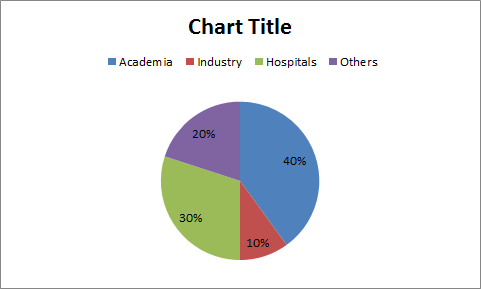
The prevalence of infant, childhood and adolescent obesity may be plateauing in some settings, but in absolute numbers there are more children who are overweight and obese living in low- and middle-income countries (LMICs) than in high-income countries (HICs).
Overweight by WHO region and World Bank income group. Prevalence data available for older children and data on adolescents are currently being verified and will be released by WHO towards the end of 2015. To date, progress in tackling childhood obesity has been slow and inconsistent.
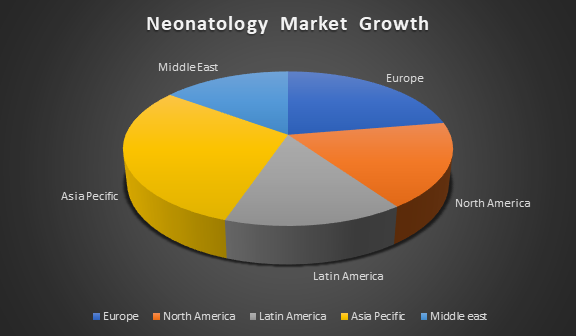
Conference Highlights
- Neonatal Gastroenterology
- Perinatology
- Pediatric Nursing
- Clinical Nursing
- Pediatric Surgery
- Neonatal Nursing
- Neonatal Nutrition
- Neonatal Resuscitation
- Primary Health Care
- Primary care in Mental Health
- Primary Care in Nursing
- Primary healthcare of neurological disorders
- Health and Wellness
- Women Health
- Neonatal Lung Diseases and Hepatitis
- Infectious diseases and Global Health in children
- Primary Care and Oncology
- Primary care and Diabetes
- Primary Care and Dental Science
- Advanced Nursing Practice
To share your views and research, please click here to register for the Conference.
To Collaborate Scientific Professionals around the World
| Conference Date | November 09-10, 2020 | ||
| Sponsors & Exhibitors |
|
||
| Speaker Opportunity Closed | |||
| Poster Opportunity Closed | Click Here to View | ||
Useful Links
Special Issues
All accepted abstracts will be published in respective Our International Journals.
- Journal of Child and Adolescent Health
- Journal of Pregnancy and Neonatal Medicine
- Journal of Primary Care and General Practice
Abstracts will be provided with Digital Object Identifier by



